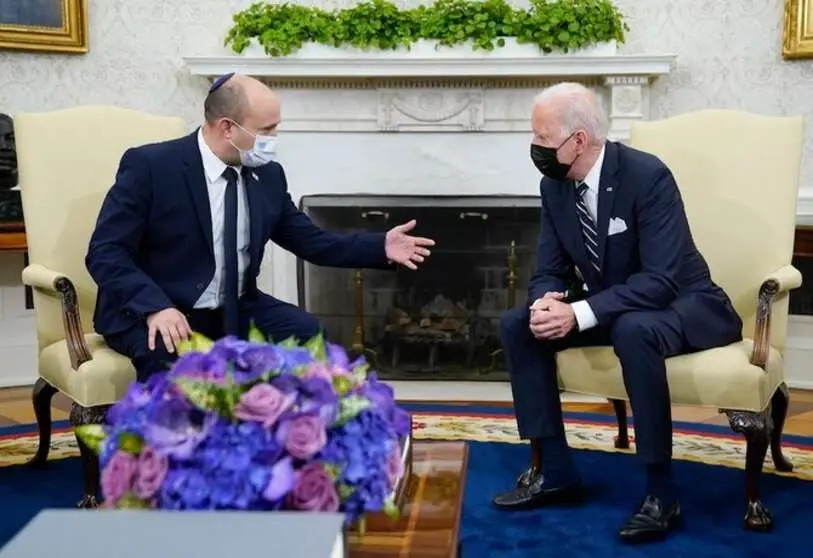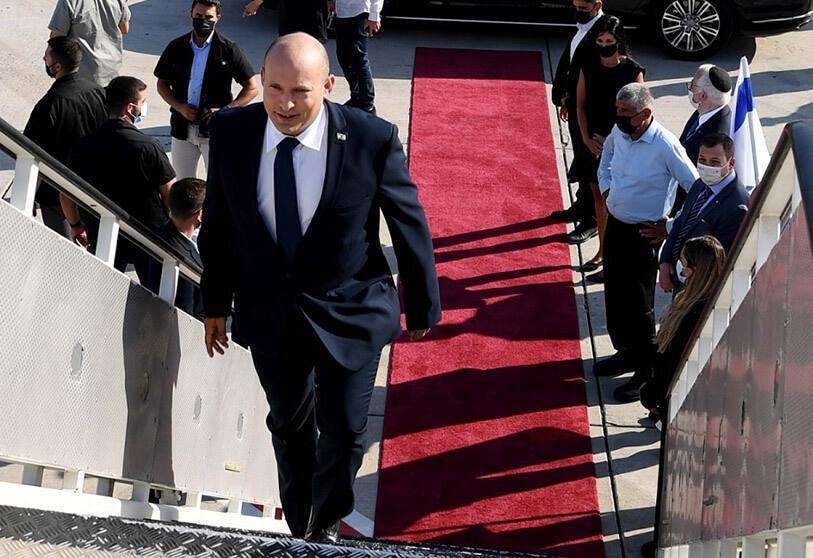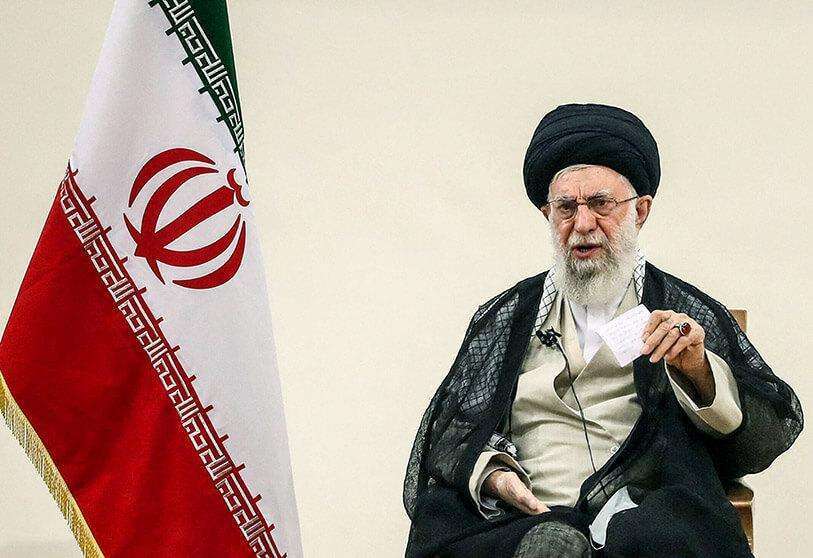US signals to Israel that it will take other options if diplomacy with Iran fails

US President Joe Biden told Israeli Prime Minister Naftali Benet on Friday that his country will adopt other options if the diplomatic track with Iran, Israel's great enemy, fails.
Negotiations to revive the nuclear agreement with the Islamic Republic, which Israel opposes, were the focus of Friday's meeting at the White House between the two leaders, in what is Benet's first official trip since taking office.
Speaking to reporters before the start of the meeting, Biden made it clear to Benet that he wants to prioritise diplomacy before considering other alternatives.
"Let's put diplomacy first and see where it takes us, and if diplomacy fails, we're ready to go back to other options," he said.

Even so, Biden stressed a shared commitment with Israel that Iran 'will never develop a nuclear weapon'.
The Benet-led coalition - like the previous government of Benjamin Netanyahu - fervently opposes the 2015 nuclear deal between Iran and the G5+1 (Germany, the US, China, France, the UK and Russia), which Biden plans to rejoin after the administration of his predecessor Donald Trump (2017-2021) withdrew the US from the pact in 2018.
Iran and the remaining powers in the pact, plus the European Union (EU), have been negotiating in Vienna since early April for the US, which is participating in the talks indirectly, to return to the deal and for Tehran to comply with it in full.
Asked later what those options might be, White House spokeswoman Jen Psaki said in her daily press briefing that there are several alternatives on the table, although the "first preference" and priority is the diplomatic track.
For his part, Benet welcomed Biden's remarks that there may be other options if diplomacy does not work and that Iran "will never be able to acquire a nuclear weapon".

He warned that if a "radical Islamic regime" were to acquire nuclear weapons, it would be a global atomic nightmare.
"Iran is the world's leading exporter of terror, instability and human rights violations, and as we sit here now, the Iranians are using the centrifuges at (the nuclear power plants at) Natanz and Fordow. We have to stop it," he said.
Benet also thanked Biden for US assistance in the region, where "getting it right is not enough": "Israel has to be strong to get it right".
In this sense, he recalled that one should not lose sight of the fact that his country "is in the toughest neighbourhood in the world", with the Islamic State (IS) group on its southern border, the Lebanese Shiite organisation Hezbollah on the northern border and with "Iranian militias, Islamic Jihad and Hamas" all around.
"They all want to kill us, kill us, kill Israelis. They want to annihilate the Jewish state; and that is why Israel must always be overwhelmingly strong, stronger than any of its enemies, in fact, than all of our enemies put together," he said.
Biden highlighted the "unbreakable alliance" between the two nations and the US commitment to Israel's security.
In this regard, the American expressed his "total" support for the restoration of Israel's Iron Dome air defence system, after the escalation of the war with Gaza last May.
Biden also expressed support for Israel developing "deeper" ties with its Arab and Muslim neighbours.
That's a trend," he said, "that I think should be encouraged, not discouraged, and we will do everything we can" to support it.
The Trump administration has encouraged the normalisation of relations between Israel and several Arab and Muslim countries, including Morocco, the United Arab Emirates, Sudan and Bahrain.
Until now, Biden had been cautious about these agreements, which broke with one of the maxims of the Israeli-Palestinian conflict: no normalisation of relations between Arab nations and Israel until the Palestinian issue is resolved.

At their meeting on Friday, they also discussed the pandemic and the two countries' vaccination programmes.
On immunisation, one of the points they discussed was the third dose of the covid-19 vaccine, which Israel began administering earlier to certain age groups and which the US has said it wants to begin administering to all adults over the age of 18 as of 20 September.
In that regard, Biden said the US will evaluate Israel's recommendation that the US should administer the booster dose sooner than eight months for those already vaccinated.
"Should it be less than eight months? Should it be five months? It's being discussed and I spoke this morning with Dr (Anthony) Fauci about that," he said, referring to the Washington administration's chief epidemiologist.
The meeting between Biden and Benet at the White House, in what is the Israeli's first official trip since taking office, was scheduled for Thursday but was postponed because of the Kabul airport bombing, which killed dozens of people, including 13 US soldiers.

Iranian supreme leader Ali Khamenei said on Saturday that Washington's political demands on Tehran under the administration of current US President Joe Biden have not changed from those of his predecessor Donald Trump's administration.
"The current US administration is no different from the previous one. Its demand is the same as Trump's and it has not made any difference," Khamenei stressed regarding Iran's nuclear dossier, during his first meeting with the new ministers approved by parliament and the country's new president, Ebrahim Raisi, the Iranian supreme leader's official website reported.
Khamenei added that "to be fair, behind the scenes of US foreign policy there is a predatory wolf that sometimes turns into a cunning fox" and as an example he gave the current situation in Afghanistan for which he blamed Washington for the tragedies currently being suffered by Afghans.
"It is the work of the United States, the tragedies in Afghanistan deeply affect the human being," said Khamenei, stressing that all the hardships Afghans are going through and the constant events and killings they are suffering "are all the work of the United States".








